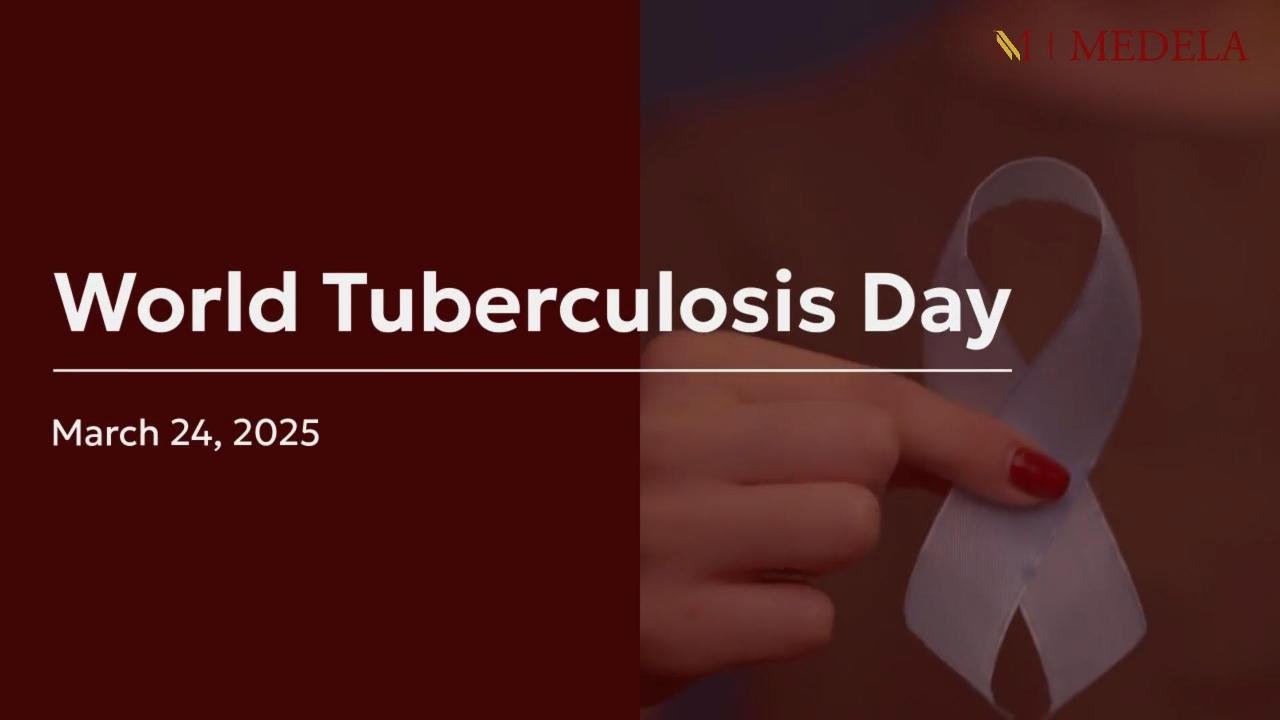
Tuberculosis (TB) is an infectious disease caused by bacteria that most often affects the lungs. It spreads through the air when people with TB cough, sneeze or spit. TB is preventable and curable. It is a global public health problem requiring about US$ 22 billion annually for its prevention, diagnosis, treatment and care to achieve the global target by 2027 agreed upon at the 2023 UN high level-meeting on TB. Ending the TB epidemic by 2030 is among the health targets of the United Nations Sustainable Development Goals (SDGs). This is achievable but would require commitment and investment.
TB continues to devastate millions globally, inflicting severe health, social, and economic consequences About a quarter of the global population is estimated to have been infected with TB bacteria. About 5–10% of people infected with TB will eventually experience symptoms and develop TB disease. Those who are infected but free of disease cannot transmit it. TB disease is usually treated with antibiotics and can be fatal without treatment. In 2023. 10.8 million people fell ill with TB including 6.0 million men, 3.6 million women and 1.3 million children, while 1.25 million people died of TB. Multidrug-resistant TB (MDR-TB) however remains a public health crisis and a health security threat. Only about 2 in 5 people with drug resistant TB accessed treatment in 2023, leaving a large pool of potentially infectious people who can transmit resistant TB strains to their contacts.
The World TB Day, which is observed annually on March 24, has always represented a call for action. This year 2025 is no exception. amplifies the urgency of ending tuberculosis—the world’s deadliest infectious disease. This year’s theme, Yes! We Can End TB: Commit, Invest, Deliver, is not an exception but a bold call for hope, urgency, and accountability in the global effort to end the TB scourge that has resulted in the loss of million of lives in the past decades. Since 2000, the concerted global effort to end the TB scourge has helped to save 79 million lives till date because of better TB diagnostics and therapy.
For this years World TB Day’s commemoration, three key actions have been proposed namely: Commit, Invest and Deliver. The call for commitment is based on the 2023 UN High-Level Meeting, where World leaders pledged to accelerate efforts to end TB. WHO is therefore calling for real actions in the rapid implementation of WHO guidance and policies, and the strengthening of national strategies, backed with full funding, by member States.
The next action advocated is for sustained global and national Investment into the different strategies that have been deployed to End TB. It is obvious TB cannot be defeated without proper financing. There is need therefore for a bold, diversified and innovative approaches to the funding of the various TB interventions. The need for the moment is on how best to close the funding gaps in access to TB prevention, treatment and care, as well as to advance research and innovation.
The third action being advocated is the putting words into action by acting to deliver on the promises made to end TB. The call to deliver is an urgent cry for governments, NGOs, Donors etc. To turn commitments into action by scaling up proven WHO-recommended interventions, which includes early detection, diagnosis, preventive treatment, and high-quality TB care, particularly for drug-resistant TB. Success in the fight against TB in not a health or sector affair; it encompasses other disciplines and sectors with community leadership, civil society action, and cross-sector collaboration.
The World Anti Tuberculosis Day has therefore been designated to spread awareness among the masses about the lethal disease tuberculosis (TB) and to ask the global leaders to take serious actions to
eliminate this disease, such that it no longer poses a public health threat. It is also a period to highlight the risk factors that can predispose to getting TB including Certain conditions can increase a person’s risk for TB disease: diabetes (high blood sugar), weakened immune system (for example, from HIV or AIDS), being malnourished, tobacco use and the harmful use of alcohol as well as reduce stigma associated with disease so that those with symptoms can seek early diagnosis and treatment .
On this auspicious day we at Medela NG join hands with all partners in the fight against TB. We NGOs as advocacy agents working in close collaboration with governmental agencies, funders and implementing partners will see the elimination of TB. Lets us all commit to sustaining the fight.
Share This News